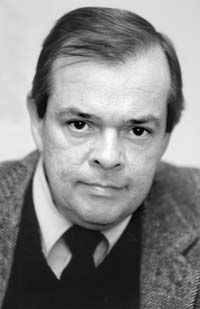One can only receive with amusement the recent protest from the Russian State Duma that radio and television broadcasting in Ukraine should be in Ukrainian, if only with subtitles if need be. First of all, one doubts how well this will be carried out. Quality programming in Ukrainian does not exist as yet, and translating Hollywood movies into Ukrainian is likely to be of benefit only to a limited number of translators. The polls show that roughly half the population of Ukraine speaks Russian at home, although it is a brand of Russian that our friends from Russia often have trouble understanding, while the other half claims to speak Ukrainian, for many of whom the brand of which is fairly far removed from the literary language. Despite the best efforts of Ukrainian officialdom, this is probably not going to change significantly in the immediate future. About the best we can hope for in the next few years is that most of those who claim to speak Ukrainian will actually learn the language, that some of those who speak Russian will make get it in a shape that our Russian friends can actually understand them and learn some passive command of Ukrainian, and at last there will be a larger space for the Ukrainian language, literature, arts, and other culture in the broadest sense.
If, of course, the Russian Duma makes claims about the Russian language in Ukraine, Ukraine has every right to make similar claims on behalf of the estimated ten million Ukrainians living there. To my knowledge, Russia boasts a number of Ukrainian-language periodicals but no schools to teach the younger generation how to read them. If Russia would like a bilateral agreement on Russian-Ukrainian bilingualism, this writer has no doubt that Ukraine can provide the appropriate negotiators and hammer something out. Fair is fair.
The brutal fact is this: Ukraine has for a very long time suffered from imperial policies designed to reduce the utility of the Ukrainian language in Ukraine and expand the range of Russian. Other places — Ireland and Quebec come to mind — have faced this problem and tried to restore the national language to the place it would have been in had the external pressure on it not occurred. Quebec has been a bit more successful that Ireland. We also have the fact that many Russians consider the Ukrainian language a form of Russian corrupted by Polish (try to read the chancellery Russian from the time of Ivan the Terrible, and you might find that the roots of Russian are a bit different from those of Ukrainian), that Russian history began in Kyiv (you can begin your history wherever you want, because you are projecting later concepts onto times, places, and peoples, to which they were completely foreign, but I would recommend reading A. E. Presniakov, Obrazovanie velikorusskogo gosudarstva {Petrograd, 1918, translated into English as The Making of the Great Russian State} to see how it all got started there), and that this country really is part of Russia’s legitimate sphere of influence. The announced measures are really only an attempt to correct this.
There are many Ukrainians who see things differently from our Russian friends, and international relations is above all the right to agree to disagree about things from time to time. Ukraine has chosen to try to enter NATO and the European Union as the best guarantee against those who think it really should not be independent at all. After all, our Dutch friends have a language that some other Europeans consider less that pleasing to the ear, but nobody is prepared to prevent them from speaking it. Ukraine’s duly elected representatives have decided to defend the Ukrainian language, and those who have been selected by the people to have the right to speak on behalf of the state deserve their say. Europe has worked to create a state of tolerance where peoples and languages might differ, but all are united in the common goal of making their individual national contributions to human civilization. There are strong measures on record about preserving the rights of those who might speak another language or do other things differently. Ukraine has decided that it wants to be part of that community, and it has not only the right to make that decision: it was the right decision to make.
Incidentally, Kyiv, which has perhaps the cheapest cable television in the world, receives Russian Channel One, so those who want a Russian television show will not be left without something to watch.







